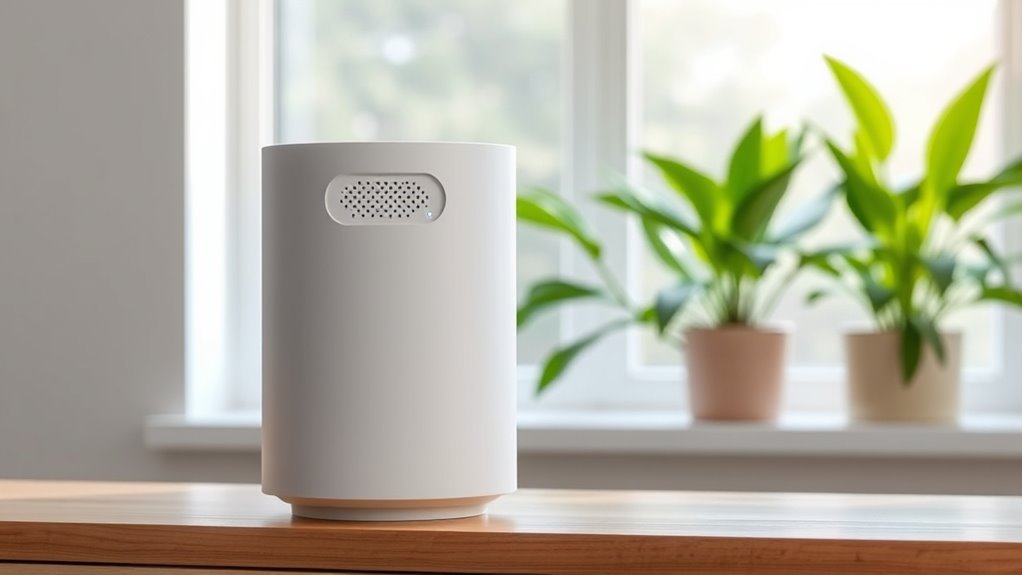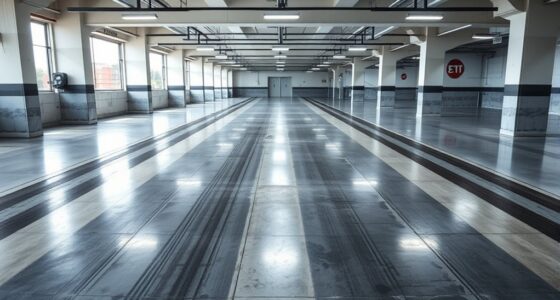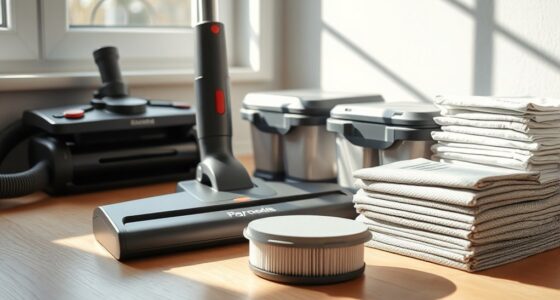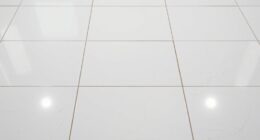When choosing HEPA options for indoor air quality, focus on models that match your room size and target specific pollutants like dust, pollen, or smoke. Look for devices with activated carbon filters for odors and VOCs, and verify they have easy maintenance and filter replacement features. Position your unit properly and run it consistently for best results. To learn more about selecting and maintaining the right HEPA air purifier, keep exploring your options.
Key Takeaways
- HEPA filters effectively remove airborne particles like dust, pollen, pet dander, and smoke for cleaner indoor air.
- Choose HEPA air purifiers based on room size to ensure optimal air cleaning performance.
- Consider models with additional filters, such as activated carbon, to target odors and VOCs.
- Regularly replace HEPA filters every 6 to 12 months to maintain air purifier efficiency.
- Proper placement and ongoing maintenance enhance the effectiveness of HEPA-based indoor air quality solutions.
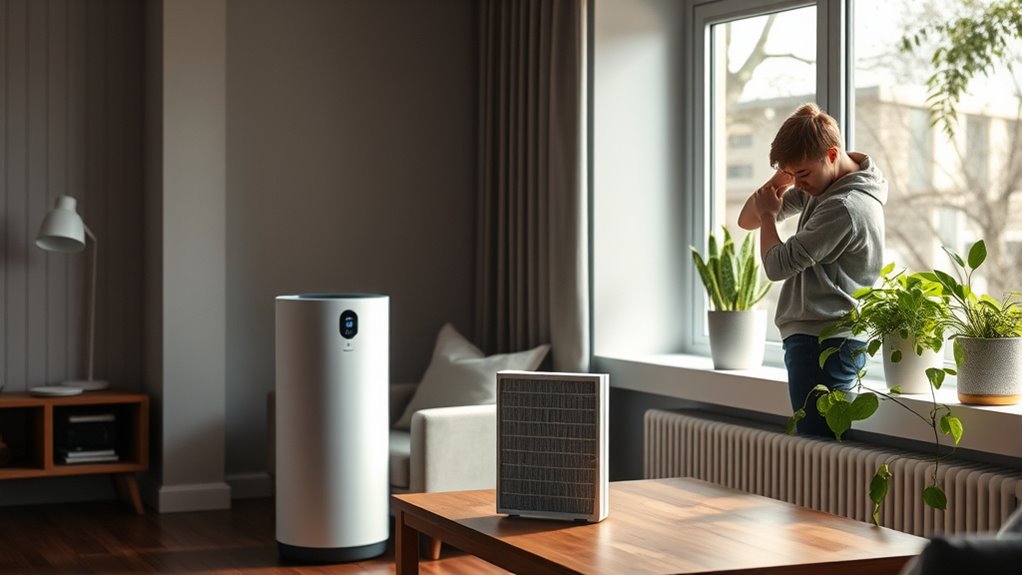
Have you ever wondered how to improve the air inside your home or office? If so, focusing on your air purifier selection is a smart move. HEPA filters are among the most effective tools for removing airborne particles, but choosing the right one can seem overwhelming. When selecting an air purifier, consider the size of the space you want to clean. Look for models designed to handle the square footage of your room—this guarantees peak efficiency and air cleaning. Think about the specific pollutants you’re concerned about, such as dust, pollen, pet dander, or smoke. Many HEPA purifiers also include additional filters like activated carbon, which can tackle odors and VOCs, giving you a more complete air cleaning solution.
Once you’ve selected the right HEPA air purifier, maintaining it properly is vital to keep it working effectively. Regular maintenance tips include checking and replacing filters according to the manufacturer’s instructions. Typically, HEPA filters need changing every 6 to 12 months, but this can vary depending on usage and air quality. When replacing filters, ensure you handle them carefully and follow the instructions to avoid releasing trapped pollutants back into the air. Keep the exterior of the purifier clean by wiping it down with a damp cloth; dust and debris on the surface can reduce airflow and efficiency. Additionally, don’t forget to inspect the pre-filters if your model has them—they often need cleaning or replacement more frequently to prevent clogging. Understanding air quality and how it affects health can motivate consistent upkeep of your purifier.
Proper placement of your air purifier also contributes to its effectiveness. Position it where airflow isn’t obstructed—away from walls, curtains, or furniture that can block the intake or outlet vents. Placing it in rooms where you spend the most time, like bedrooms or living areas, maximizes benefits. Running the purifier continuously or during times when air quality is at its worst ensures you’re consistently removing airborne pollutants. Remember, an air purifier is an ongoing investment, not a one-time fix. Staying on top of regular maintenance and choosing the right model for your needs keeps your indoor air cleaner and healthier.
Frequently Asked Questions
How Often Should HEPA Filters Be Replaced for Optimal Performance?
You should replace your HEPA filters every 6 to 12 months for peak performance. Regular filter maintenance is vital to guarantee efficient air cleaning. Factors like your indoor air quality, filter usage, and manufacturer’s guidelines influence the replacement frequency. Check the filter periodically; if it looks dirty or clogged, replace it sooner. Proper maintenance keeps your air purifier working effectively, helping you breathe cleaner, healthier air every day.
Are HEPA Filters Effective Against Viruses and Bacteria?
In the blink of an eye, HEPA filters have become the knights in shining armor for virus defense and bacterial filtration. You can trust them to trap particles as tiny as 0.3 microns, which includes many viruses and bacteria. While they don’t kill pathogens, they markedly reduce airborne contaminants, making your indoor air safer. Regular filter changes ensure they continue to perform at their best, providing you peace of mind.
Can HEPA Filters Remove Volatile Organic Compounds (VOCS)?
HEPA filters are not designed for VOC removal, as they primarily trap particles like dust, pollen, and microbes. For VOCs, you’ll need activated carbon filters, which adsorb these gaseous pollutants effectively. Keep in mind, filter longevity depends on VOC levels and air quality; higher VOC concentrations can clog filters faster. Regularly replacing or maintaining your filtration system guarantees maximum VOC removal and extends filter life.
What Is the Energy Consumption of HEPA Air Purifiers?
HEPA air purifiers typically have moderate power consumption, usually between 20 to 100 watts, depending on their size and fan speed. You can improve energy efficiency by choosing models with energy-saving features or adjustable settings. Keep in mind, lower power consumption means less energy used, helping you save on electricity bills while maintaining effective air purification. Always check the product specifications for exact power consumption details before purchasing.
Are HEPA Filters Suitable for Use in Allergy-Sensitive Environments?
Think of HEPA filters as a sieve that catches tiny allergy triggers like pollen and dust mites. They’re highly suitable for allergy-sensitive environments because they trap 99.97% of particles. However, to keep their effectiveness, you need regular filter maintenance. If you stay on top of it, HEPA filters can markedly reduce allergy symptoms, making your space more comfortable and healthier.
Conclusion
By choosing the right HEPA options, you improve your indoor air quality, breathe easier, and create a healthier environment. You filter out allergens, trap airborne pollutants, and reduce respiratory risks. You enjoy cleaner air, safer spaces, and peace of mind. You invest in your wellbeing, protect your loved ones, and foster comfort every day. With HEPA filters, you take control, breathe freely, and transform your indoor space into a haven of purity.
